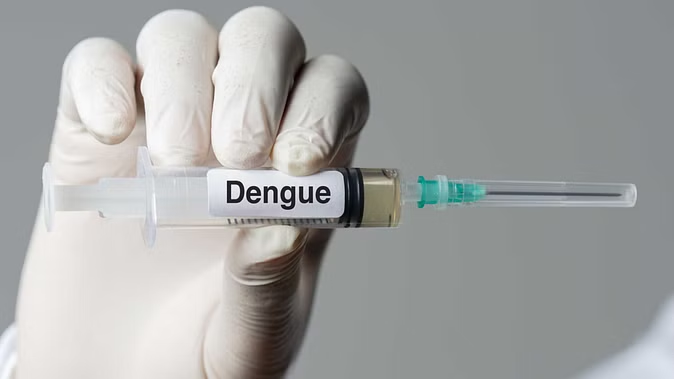Diseases caused by mosquitoes cause major challenges to the health sector every year. Diseases ranging from dengue to chikungunya, malaria to Zika are spread through mosquito bites. According to an estimate, thousands die every year due to these diseases. Especially during the rainy season, when the environment becomes favorable for mosquito breeding, the cases of these diseases are seen increasing rapidly every year. Even in the year 2023, mosquito-borne diseases troubled people a lot.

Now only a few days are left in the year 2023 and we are going to enter the new year 2024. In such a situation, let us take a look at the problems faced across the country due to mosquitoes this entire year. However, great news emerged at the end of the year.
Dengue caused a lot of trouble
This entire year, many diseases caused by mosquitoes troubled people a lot, but the problem of dengue increased the problem the most. This time the situation was seen worsening due to dengue not only in India but also in neighboring countries.
The flood-waterlogging situation caused by untimely heavy rains in the capital Delhi-NCR in the initial months of the year had significantly increased the risks of mosquito-borne diseases. Dengue in Delhi broke the record of almost six years, for the first time since 2018, the highest number of dengue cases was recorded in July. Even in the months of August-October, a huge crowd of patients was seen in hospitals due to dengue.
The most dangerous strain of dengue increases concern
The government came on alert given the rapidly increasing cases of dengue in the capital Delhi in the months of July-August. Samples of the patients were sent for genome testing in which the cases of severe dengue strain type-2 dengue were seen to increase.
Dengue infection is caused by the dengue virus (DENV), which is spread by the bite of infected mosquitoes, mainly Aedes aegypti mosquitoes. These mosquitoes bite more during the daytime. Experts say that there are four serotypes of dengue virus – DENV-1, DENV-2, DENV-3, and DENV-4. Genome sequencing of samples in Delhi revealed that most of the patients were at risk of strain type 2. DENV-2 may increase the risk of severe disease.
Dengue wreaks havoc in neighboring countries too
Not only in India, dengue cases had also increased the problems for the neighboring country Bangladesh this time. By the months of July-August itself, the number of dengue infections in the country this year had crossed 40 thousand. It is noteworthy that earlier in the year 2022, 281 people died due to the dengue virus here, which is the highest since the year 2000. In the year 2023, the situation was seen even worse due to dengue.

Malaria is also a big concern
An increasing number of patients were reported in hospitals across the country due to cases of dengue as well as malaria. However, most of the patients were recovering easily. The malaria situation was controlled in the country in time. Earlier in the year 2022, more than 45 thousand cases of malaria were reported in India, while in 2021, this disease was confirmed in about 1.6 people.
However, malaria cases increased the problem in America this year. Malaria cases increased rapidly in some states of South America. These were the first known cases of malaria reported locally in the country since 2003, the Centers for Disease Control and Prevention (CDC) reported. Malaria was considered endemic in the Americas, however, the confirmation of these cases once again raised the concern of health experts.
Chikungunya and Zika cases
Along with dengue and malaria, cases of chikungunya and Zika were also reported in the country during the rainy months, although these were controlled in time. Dengue and chikungunya are both viral diseases spread by the bite of Aedes mosquitoes. Aedes aegypti causes dengue infection, while Aedes albopictus causes chikungunya.
At the same time, in the last days of August, the confirmation of a Zika virus case in Mumbai alerted the health department, which was also controlled in time.
Great news regarding mosquito-borne diseases
Many mosquito-borne diseases increased the problems this year, but at the end of the year, good news also emerged for medical science.
US health authorities approved the world's first vaccine for chikungunya on November 9. According to a release issued by the FDA, the vaccine Ixchik, developed by the European company Valneva, can help reduce the risks of chikungunya that occurs every year around the world. Promising results of this vaccine were seen. Experts hope that this vaccine will help in reducing the risk of this serious disease in the coming years.
(PC: iStock)










